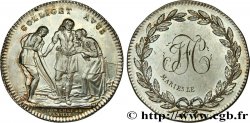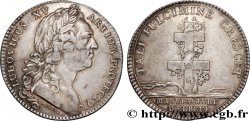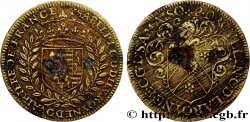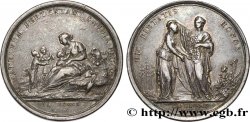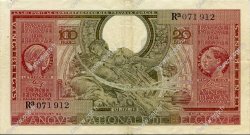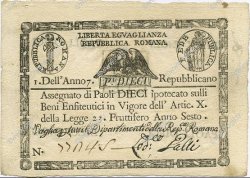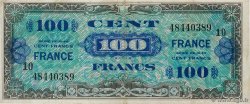E-auction 255-178711 - fjt_454244 - NORMANDIE (NOBLESSE ET VILLES DE...) Jeton Ar 28, prieur et juges-consuls de Dieppe 1762
Чтобы принять участие в торгах, вы должны войти в систему и стать подтвержденным участником аукциона. Войдите, чтобы сделать ставку. Ваш аккаунт будет подтвержден в течение 48 часов. Не ждите до закрытия торгов, чтобы зарегистрироваться.Сделав ставку на данный товар, вы вступаете в юридическое соглашение на покупку выбранного товара и нажатием кнопки «Сделать ставку» подтверждаете принятие вами условий интернет-аукционов cgb.fr.
Ставка может бить сделана только в полном эквиваленте евро. Торги закроются согласно времени, указанному в описании товара, все ставки, сделанные после закрытия торгов, учитываться не будут. Не следует откладывать предложение вашей ставки до последнего момента, так как система может не успеть обработать вашу заявку, и ваша ставка не будет принята. Более детальную информацию вы найдёте здесь: FAQ по интернет-аукционам.
БЕСПЛАТНО.
БЕСПЛАТНО.
| Оценить : | 60 € |
| Цена : | 36 € |
| Максимальная предлагаемая цена : | 37 € |
| Конец торгов : | 05 March 2018 18:39:30 |
| Участников : | 7 Участников |
Тип Jeton Ar 28, prieur et juges-consuls de Dieppe
Дата: 1762
Металл: silver
Диаметр: 28 mm
Ориентация осей монеты: 6 h.
Вес: 9,6 g.
Век: cannelée
Комментарии о состоянии
De minimes taches sinon un exemplaire superbe avec une très faible usure
Ссылки в каталоге: :
Лицевая сторона
Аверс: легенда: LUD. XV. REX - CHRISTIANISS..
Аверс: описание: Buste lauré et drapé à droite de Louis XV [variété du n° 338] ; au-dessous signature B. DUV. .
Аверс: перевод: (Louis XV, roi très chrétien).
Обратная сторона
Реверс: легенда: CIVICO. FŒDERE PRODERIT ; À L'EXERGUE EN DEUX LIGNES : ÆDIL. DEPPÆ COMIT./ 1762.
Реверс: Описание: Écu aux armes de Dieppe sur un cartouche surmonté d’une tête d’ange et soutenu par deux Néréides ; signature D. V..
Реверс: перевод: (Elle sera utile à l'alliance civile - Assemblée des notables de Dieppe).
Комментарий
Probablement une association avec un droit de Benjamin Duvivier et un revers de Jean Duvivier, son père. Les juridictions consulaires remontent à Henri II. Dans ces lieux de réunions, les marchands élisent entre eux un prieur et deux juges-consuls qui règlent en première instance les problèmes entre négociants. Les juges-consuls ou juges des tribunaux de commerce sont établis par un édit de 1563. Ils étaient souvent d’anciens consuls (officiers municipaux) d’où leur nom. Au XVIIIe siècle, les juges-consuls jugeaient souverainement jusqu’à 500 livres (au-delà, l’affaire relevait des Parlements).
Probably an association with a right of Benjamin Duvivier and a reverse of Jean Duvivier, his father. Consular jurisdictions date back to Henry II. In these meeting places, merchants elected among themselves a prior and two consul judges who settled in the first instance the problems between traders. The consul judges or judges of the commercial courts were established by an edict of 1563. They were often former consuls (municipal officers), hence their name. In the 18th century, the consul judges judged sovereignly up to 500 pounds (beyond this, the matter fell under the jurisdiction of the Parliaments).
Probably an association with a right of Benjamin Duvivier and a reverse of Jean Duvivier, his father. Consular jurisdictions date back to Henry II. In these meeting places, merchants elected among themselves a prior and two consul judges who settled in the first instance the problems between traders. The consul judges or judges of the commercial courts were established by an edict of 1563. They were often former consuls (municipal officers), hence their name. In the 18th century, the consul judges judged sovereignly up to 500 pounds (beyond this, the matter fell under the jurisdiction of the Parliaments).








 Cообщить об ошибке
Cообщить об ошибке Распечатать страницу
Распечатать страницу Отправить мой выбор
Отправить мой выбор Задать вопрос
Задать вопрос Consign / sell
Consign / sell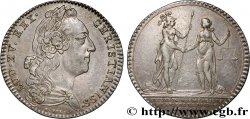
 Информация
Информация
